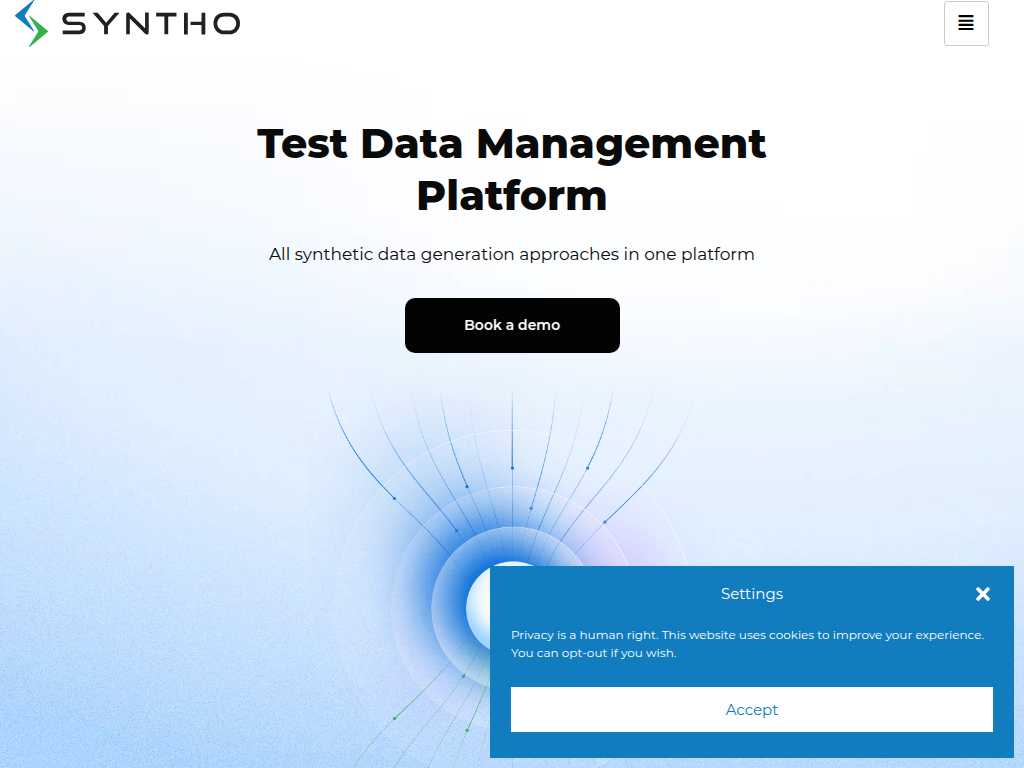Syntho
Data Management

Unlock data potential with Syntho's AI-generated synthetic data.
Average rated: 0.00/5 with 0 ratings
Favorited 0 times
Rate this tool
About Syntho
Syntho is an innovative Amsterdam-based company specializing in AI-generated synthetic data, designed to help businesses overcome data limitations and unlock new opportunities. The core purpose of Syntho is to enable organizations to generate high-quality synthetic data that replicates the statistical properties of real data without compromising privacy. This approach addresses challenges linked with data privacy regulations and fulfills the demand for large datasets essential for various applications. Syntho provides three key solutions: AI-generated synthetic data for analytics and AI modeling, smart de-identification of sensitive information to comply with data privacy regulations like GDPR, and test data management that supports development cycles without using real production data. Its Syntho Engine offers robust capabilities, including automated smart de-identification, time series data synthesis, upsampling, consistent relational database mapping, rule-based data generation, and AI-powered PII scanning—all delivering privacy and data utility. These capabilities extend Syntho's utility across industries, influencing AI modeling, analytics, data sharing, and data monetization. Unique selling points of Syntho include its integrated solution combining AI-generated data, de-identification, and test data management on one platform, high accuracy in data generation, a privacy-centric design, and a user-friendly interface that integrates seamlessly with other systems via REST API. The Syntho Engine supports various environments such as on-premise, private clouds, and Syntho’s own cloud infrastructure, deployable via Docker-Compose and Kubernetes. Recognized for its groundbreaking work, Syntho has been honored with several awards, including the Philips Innovation Award, UNESCO’s Challenge at VivaTech, and being noted as a generative AI startup by NVIDIA. Noteworthy too is their achievement as winners in the global SAS Hackathon for Healthcare and Life Sciences. A recent development includes a significant partnership with the biobank Lifelines, enhancing data access for research while safeguarding privacy, thereby affirming Syntho's expanding influence in the synthetic data landscape.
Key Features
- AI-generated synthetic data that reflects real data patterns without containing sensitive information
- Smart de-identification features automatically remove or modify Personally Identifiable Information (PII) for privacy compliance
- Comprehensive test data management that safeguards sensitive information while supporting software development and testing cycles
- The Syntho Engine supports various data types, ensuring ease of deployment and integration
- Accurate synthesis of time-series data for time-dependent analyses
- Upsampling to address data imbalances and improve data representativeness for machine learning model training
- Full data coverage with optimized support for complex data structures
- High accuracy of synthetic data, approved by experts at SAS